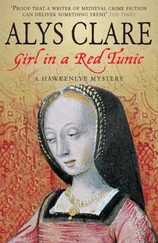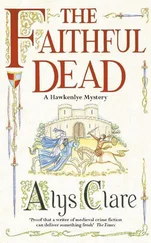Alys Clare - Heart of Ice
Здесь есть возможность читать онлайн «Alys Clare - Heart of Ice» весь текст электронной книги совершенно бесплатно (целиком полную версию без сокращений). В некоторых случаях можно слушать аудио, скачать через торрент в формате fb2 и присутствует краткое содержание. Год выпуска: 2007, Издательство: Hachette Littlehampton, Жанр: Исторический детектив, на английском языке. Описание произведения, (предисловие) а так же отзывы посетителей доступны на портале библиотеки ЛибКат.
- Название:Heart of Ice
- Автор:
- Издательство:Hachette Littlehampton
- Жанр:
- Год:2007
- ISBN:нет данных
- Рейтинг книги:4 / 5. Голосов: 1
-
Избранное:Добавить в избранное
- Отзывы:
-
Ваша оценка:
- 80
- 1
- 2
- 3
- 4
- 5
Heart of Ice: краткое содержание, описание и аннотация
Предлагаем к чтению аннотацию, описание, краткое содержание или предисловие (зависит от того, что написал сам автор книги «Heart of Ice»). Если вы не нашли необходимую информацию о книге — напишите в комментариях, мы постараемся отыскать её.
Heart of Ice — читать онлайн бесплатно полную книгу (весь текст) целиком
Ниже представлен текст книги, разбитый по страницам. Система сохранения места последней прочитанной страницы, позволяет с удобством читать онлайн бесплатно книгу «Heart of Ice», без необходимости каждый раз заново искать на чём Вы остановились. Поставьте закладку, и сможете в любой момент перейти на страницу, на которой закончили чтение.
Интервал:
Закладка:
The captain faced a dilemma. Did he send other men to hunt for the fugitive and bring him back on board into the captain’s self-imposed quarantine? Or did he sail off and, praying that the man was not infected, leave him behind? After much agonised thought, the captain decided that to send more men ashore to search for the missing man would only increase the risk of infection. With a heavy heart and a guilty conscience, he ordered the ship to be prepared for sea and set sail for home.
The fugitive watched his ship disappear into the misty night. Silently rejoicing — wasn’t he the clever one, getting away from both the ship and the awful secret it carried? — but his happiness was short lived. Soon he began to feel ill, and the faint symptoms escalated so quickly that he was unable to fool himself that it was merely a matter of his body adjusting to dry land after so long at sea. He tried to find help, knocking on door after door, but the people of Boulogne were used to importunate sailors begging for their help and they firmly turned him away.
The sick man crawled off to die.
He was found by a kindly Hastings merchant staying in the port while he waited to take ship back home to England with the large consignment of myrrh and frankincense which he had just bought. For a day or two the merchant tended the sick sailor as best he could, in his anxiety biting his nails and tearing at his cuticles until they bled, but any help he offered came far too late and the sailor died. The merchant, aware that the ship that would take him across the Channel had just docked and that he needed to make haste to see her captain, gave a local lad a few coins and ordered him to dispose of the sailor’s corpse. Then he hurried away. (The lad pocketed the coins and, as soon as the Hastings merchant had gone, tipped the body into the harbour.)
The merchant made his way to an inn where he washed his hands (the sailor had been steeped in his own filth) and ordered food and drink for a swiftly consumed meal before joining his ship. Then he walked down to the quay, where, boarding the ship, he met up with a young man who was also returning to England. This man was the assistant and apprentice of a rich Newenden apothecary and he was on his way home with a parcel of rare ingredients that his master had ordered from the great fair at Troyes, in the Champagne country south of Paris. Believing themselves to be the only passengers, the two men settled down together to pass the voyage as comfortably as they could. It seemed to the Hastings merchant that the young man was scared out of his wits; kind-hearted soul that he was, he made up his mind to encourage his companion to unburden himself in the hope that he might be able to offer the younger man his help.
Unseen by either man, nor by the captain or the crew of the small vessel, someone else crept aboard just as the ship slipped her moorings.
Elsewhere, the disease was already beginning to die out. The inhabitants of Eilat and Gaza, accustomed to plague and possessing the knowledge of how to restrict its spread, had quickly taken the necessary measures. In Genoa too, they had managed to contain the disease and only a handful had sickened and died; a lucky half dozen had fallen ill and later recovered. On board the Genoese ship, now sailing across the Bay of Biscay, there had been no new cases. The sailor who had jumped ship in Boulogne was dead and his body was at the bottom of the sea.
But the well-meaning Hastings merchant had touched the sailor’s sores and blisters in his vain attempts to help the man’s pain; both the blood and the bodily fluids of the dying man had entered the merchant’s body through the small cut that he had made with his own teeth in the cuticle of his forefinger. Unbeknownst to the merchant, the deadly virus was even now multiplying in his system and soon it would make its presence felt.
The terrible enemy was on its way to England.
Back in his comfortable home in Hastings, the merchant developed a high fever and a raging headache. His nervous and reclusive spinster sister took fright and locked herself away, ordering the household’s overworked maidservant to take care of the merchant as best she could. What care she was able to provide did the poor man no good whatsoever and he died within a matter of days.
The apothecary’s assistant sickened four days after returning to Newenden, suffering from excruciating pains in the joints and a fluctuating fever. His master offered one or two remedies but soon came to the alarming realisation that this ailment, whatever it might be, was beyond his considerable skill. Lending the assistant his horse, he ordered the young man to get himself over to Hawkenlye and see what the good sisters and brothers made of him; the apothecary had a scientist’s scepticism about the benefits of the famous holy water spring at Hawkenlye Abbey but considered it was probably worth a try.
And, he reassured himself, if his assistant went to Hawkenlye, the sickness would leave with him.
The apothecary’s assistant knew all about Hawkenlye. He had heard the tale of the dying merchant who saw a vision of the Blessed Virgin and, drinking from the spring that she indicated, promptly regained his health. As he rode, slipping in and out of consciousness, his head aching as if a fiend were hammering inside it with a red-hot hammer and his back so painful that he moaned at any variation in his horse’s gait, the young man prayed fervently that the Virgin would help him too. The weather was deadly cold; he had wrapped himself in his warmest cloak but sometimes, despite its thickness, found himself shivering so violently that it was all he could do to remain in the saddle. Then suddenly he would be hot, sweating, gasping for air that, when it entered his lungs, seemed to burn like fire.
He rode down into Hawkenlye Vale as the short January light was failing. The path wound along beside what seemed to be a lake or a pond, presently covered with a thin layer of ice that he thought he could hear creaking, as if complaining about the steady increase in its own weight. His sight was fading but he could just make out what seemed to be a huddle of low buildings some distance off. One of them, he fancied, had a cross on its roof.
He slipped off the horse’s back and tried to run towards the little chapel. Stumbling, he cried out in what he thought was a loud voice to the Blessed Virgin to come out and find him, take him in her loving arms, give him her healing waters.
His prayers were answered.
Ahead of him a figure stepped out on to the path. His fever-filled mind made his eyes see what he wanted to see and he thought the figure was a woman in a blue robe with a kindly smile on her beautiful face. Lurching towards her, he said the words of her special prayer, eager, hands held out to her, confident that she would help him, heal him.
But the dark figure was not smiling. Was not, indeed, a woman and as far away from being the mother of God as it was possible to be.
The apothecary’s assistant had no time to be afraid. A blissful expression on his face, he knelt with open arms before the figure in expectation of a cool hand descending on his hot forehead in blessing.
It was not a cool hand. It was a club, wielded with such force and such skill that one swift blow was all that was necessary to end the young man’s life.
After checking to make sure he was dead, the dark figure quickly went through the contents of the pouch attached to the young man’s belt, then rolled him across the path and over the frosty grass that edged the pond. Breaking the ice with the heel of his boot, he slid the corpse into the black water. Then he mounted the apothecary’s horse and rode away.
The temperature plummeted that night. By morning, the pond and its deadly secret were covered in a thick sheet of ice.
Читать дальшеИнтервал:
Закладка:
Похожие книги на «Heart of Ice»
Представляем Вашему вниманию похожие книги на «Heart of Ice» списком для выбора. Мы отобрали схожую по названию и смыслу литературу в надежде предоставить читателям больше вариантов отыскать новые, интересные, ещё непрочитанные произведения.
Обсуждение, отзывы о книге «Heart of Ice» и просто собственные мнения читателей. Оставьте ваши комментарии, напишите, что Вы думаете о произведении, его смысле или главных героях. Укажите что конкретно понравилось, а что нет, и почему Вы так считаете.












